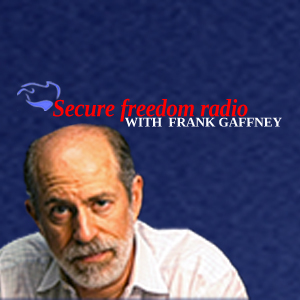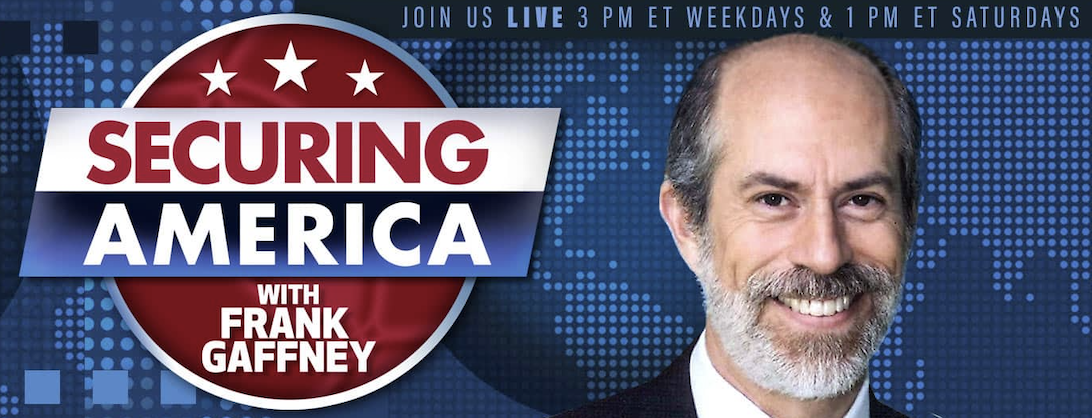Episodes

Tuesday Apr 08, 2014
Claudia Rosett, Diana West, Andy McCarthy, Ted Bromund
Tuesday Apr 08, 2014
Tuesday Apr 08, 2014
Journalist in Residence at the Foundation for Defense of Democracies CLAUDIA ROSETT runs through the international responses to Vladimir Putin's invasion of the Crimea. She highlights particularly the UN General Assembly's resolution condemning the invasion, which directly named Russia only once. Rosett also describes the effect the differences between US rhetoric and actions are having on China's military buildup.
DIANA WEST, author of "American Betrayal", examines Marxist sentiments found throughout the US. She argues that these feelings are a legacy of the US's failure to completely win the ideological battle of the Cold War.
ANDY McCARTHY, former federal prosecutor, offers his insight into the possible ramifications of further U.S. involvement in the Syrian conflict. He contends that this issue, in addition to the Russian-Ukraine conflict and the Israeli peace talks, comprise the top diplomatic failures of President Obama and Secretary of State John Kerry.

Thursday Apr 04, 2013
Claudia Rosett, Ted Bromund, Fred Fleitz, Steven Hayward
Thursday Apr 04, 2013
Thursday Apr 04, 2013
With Claudia Rosett, Ted Bromund, Fred Fleitz, Steven Hayward. CLAUDIA ROSETT, Journalist-in-Residence at Foundation for Defense of Democracies, explains how the U.S.’s recent actions have made any nuclear weapons threat from it far less credible, and has therefore encouraged North Korea to test the limits of American patience. TED BROMUND of the Heritage Foundation unfolds the implications of the passage of the UN conventional arms control treaty. FRED FLEITZ of Lignet.com reasons that despite the soon to be reopened North Korean plant being unable to produce a bomb for at least three to five years, the international community will nonetheless feel pressured to grant the country more concessions. STEVEN HAYWARD of the Claremont Institute sets the criteria for examining the accuracy of climate modeling and determining its suitability as a factor in defense planning.

Tuesday Mar 19, 2013
Ted Bromund, Joel Hirst, Lars Hedegaard, Christian Whiton
Tuesday Mar 19, 2013
Tuesday Mar 19, 2013
With Ted Bromund, Joel Hirst, Lars Hedegaard, Christian Whiton. TED BROMUND of the Heritage Foundation draws important distinctions between rhetoric and impact concerning the Arms Trade Treaty currently at issue for the U.N. and challenges assumptions about the possibility of it's application in the U.S. without Senate ratification. In the absence of U.S. leadership in Latin America the drama plays out in Venezuela in the wake of the passing of Hugo Chavez. JOEL HIRST, the Human Freedom Fellow at the George W. Bush Institute and a Principal for Cordoba Group International, explains the state of play, who the players, and what is at stake between now and the snap elections soon to take place in Venezuela. He also discusses his novel, The Lieutenant of San Porfirio, which will be released soon in Spanish prologued by Ricardo Lopez Murphy and with praise from former Peruvian president, Alejandro Toledo. In an attempt to enforce Shariah law globally with the threat of death, an unknown assassin attempted to shoot the Danish free speech activist, LARS HEDEGAARD in the face in February of 2013. Mr. Hedegaard survived and shares his account in an interview on Secure Freedom Radio here. Former Senior State Department official, CHRISTIAN WHITON of DC International Advisory, lays out an indicting history of the Obama administrations ideological campaign against strategic missile defense which provides context for the current backtrack urgently initiated to counter a real North Korean threat.

Tuesday Oct 23, 2012
Debate Post Mortem
Tuesday Oct 23, 2012
Tuesday Oct 23, 2012
Debate Post Mortem:
It seems safe to say that among those who care and watch U.S. national security, last night’s presidential debate shed no light upon the current role of the U.S. in the world. Even in a full hour of Secure Freedom Radio’s in depth post mortem on the debate, the sea of missed opportunities leaves much more to fathom. We do begin, however, with Professor Henry Nau of the Hoover Institution and George Washington University’s Elliot School of International Affairs. Among this first round enumerating opportunities missed Henry points out that it is Russia and China who sustain the bad actors in Iran and Syria who did receive time at issue.
Next, Diana West, author of Death of the Grown-up, expresses her disappointment in Romney’s docile approach to the debate and his failure to go on the offensive against of Obama’s foreign policy record. West also talks about the strained condition of our military after more than ten years of fighting a war with no clearly articulated strategy.
Ted Bromund of the Heritage Foundation lays out the consequences of the Arms Trade Treaty respective to who may win the Presidential election despite the gaping lack of U.S. sovereignty and the role of the U.N. as topics in last night’s debate.
Andy McCarthy of National review online continues to enumerate the parade of lost opportunities to give due importance to national security issues and particularly the failure to challenge the president on Benghazi and on the arming of Al Qaeda in Syria.

